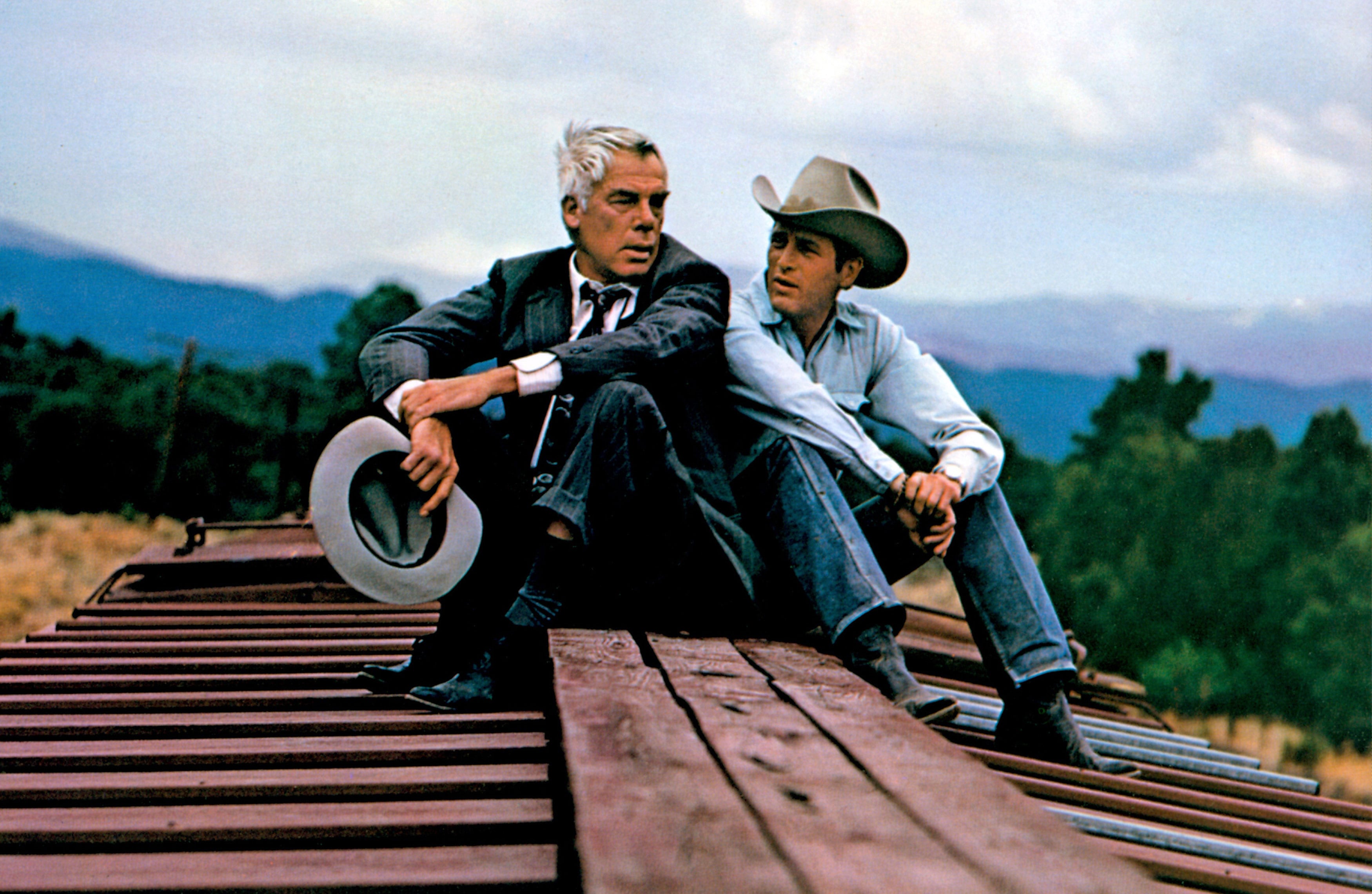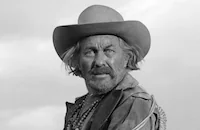One of several “twilight” cowboy movies made in the early 1970s, such as Monte Walsh (1970), J. W. Coop (1971) and Junior Bonner (1972), Pocket Money (1972) is a lightly comedic contemporary western that marked the third collaboration between director Stuart Rosenberg and star Paul Newman, following Cool Hand Luke (1967) and WUSA (1970). (Rosenberg would direct Newman for a fourth time in The Drowning Pool, 1975.)
The film was developed and produced by an independent company, First Artists, that Newman established with Sidney Poitier and Barbra Streisand, before Steve McQueen and Dustin Hoffman also joined the fold. For this first release, the company bought the rights to a 1970 novel by J. P. S. Brown entitled Jim Kane. Filming began in spring 1971 in Arizona, New Mexico, and Mexico, with the finished film released by National General Pictures in February 1972.
The wisp of a plot finds Newman as a naïve Texas cowboy, desperate for money, who enters into a questionable deal to supply Mexican cattle to a shady rodeo supplier played by Strother Martin. Joining Newman on this dubious quest is a friend played by Lee Marvin, a boozer with several failed schemes to get rich quick.
The pace is meandering, with the focus more on the characters than on plot concerns. While Terrence Malick’s screenplay appealed to both major stars, the end result left them somewhat unsatisfied. As Lee Marvin told writer Grover Lewis shortly after release, “I really loved that script, and we got it all down on film. We had it, and it just didn’t get on the screen.” Marvin claimed that Paul Newman had control over the edit and “finessed” Marvin’s part down. Newman disputed this in his own interview with Lewis: “It’s just absolutely not true,” he said. But Newman agreed that the film didn’t work as well as he had anticipated and hoped. “I was delighted to play that character, that adolescent. [But] I think the picture was too repetitious in terms of the humor, and it didn’t really know where it was going.”
Critic Vincent Canby, writing in The New York Times, found Pocket Money very appealing although he noted that the dialogue was at times made up of “almost incomprehensible cowboy jargon... It takes a while to catch on to the comedy of Newman’s performance, if only because it seems to be quietly satirizing every conventional hero he’s ever played. Marvin, too, is most funny, whether talking himself out of a fight he knows he would lose, or trying to romance a girl of no great moral rectitude by offering her devotion instead of money.”
Pocket Money is also notable as one of two screenplays written by Terrence Malick that were filmed before Malick’s illustrious 1973 writing-directing debut, Badlands. (The film of the second screenplay, Deadhead Miles, shot in 1971, would be released in 1972). Like many of Malick’s films, plot and story in Pocket Money take a back seat to mood, feel, and character, as well as a longing for a nobler world.
SOURCE:
Grover Lewis, “Lee Marvin’s Great, Goddamned Moments of the Big Kavoom” and “Cruisin’ for Burgers with Paul Newman,” originally published in Rolling Stone, collected in Academy All the Way (Straight Arrow Books, 1974)





















